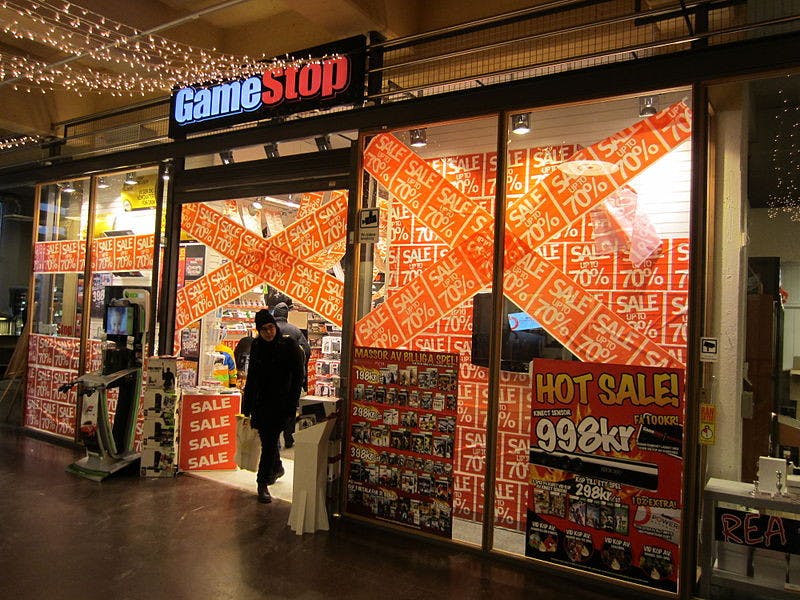GameStop experiences unprecedented stock growth

By Cole Mumper
Wall Street is often associated with elitism, the 1% and big business, where the rest of the population has no real say over the market. However, on Jan. 27, the stock price of GameStop soared, not because of wealthy investors, but because of regular people online mobilizing and investing in the market in mass.
GameStop is a company that follows the Blockbuster Video business model of renting out physical copies of media, but with video games instead of DVDs. And like Blockbuster, the rise of digital access has hurt their business model.
Due to this decline, hedge funds, or pools of money put in by investors on behalf of their clients, who are often wealthy, shorted GameStop’s stock. Shorting involves investors betting a company’s stock will decrease in value, and being paid the amount of stock value lost.
Shorting has limited gains, where the maximum money investors could make is how much money the stock was when they shorted it and if it went down to zero. On the other hand, the shorter could, theoretically, take infinite losses as there is technically no real limit to how much value a stock’s value can rise.
Shorting is one of Wall Street’s more questionable practices, said professor George Bragues, program head of business at the University of Guelph-Humber. So much so that Melvin Capital, the hedge fund that shorted GameStop, announced its plan to short GameStop stock to the public to appear more ethical. The subreddit, r/wallstreetbets — a subreddit dedicated to stock and options trading — heard about this and bought GameStop stock, causing its value to skyrocket.
On Jan. 26, GameStop’s stock was valued at $76.79 a share, jumping to $347.51 a share on Jan. 27 during the peak of this event.
Joseph Fitzgerald, a Western Washington University first-year who briefly owned GameStop stock, said the movement was fueled by wealth inequality.
“I think a lot of the teenagers were frustrated that they had so little while the hedge funds had billions so they saw it as an opportunity to close the wealth gap,” Fitzgerald said.
Mark Staton, associate professor of marketing and director of the MBA program at the College of Business and Economics acknowledged the movement’s potential anti-elite motivation, but said it's also possible the movement is, at least in some part, fueled by nostalgia for GameStop.
“I don’t anticipate GameStop’s revenue to improve, but nostalgia can overvalue things,” Staton said.
Staton said these Redditors may have had positive memories with GameStop and wanted to try and save the company.
Bragues attributes this to people on Reddit who genuinely believe in GameStop.
While there were similar types of events that manipulated the stocks, the closest analogy Bragues could compare it to was a “pump and dump” scheme. In which a person or a group of people buy up a low priced stock and try to increase interest in it, raising the price and then selling it off for profit.
It is not a perfect analogy because individual buyers are not being singled out and no clear evidence of fraud or foul play has surfaced, said Bragues.
Although the first of its kind, Bragues, Staton and Fitzgerald all agree this kind of event can happen again and influence the stock market moving forward.
“I can’t say if it’s good or bad for the economy, but at this point, it’s part of the economy,” Staton said.





